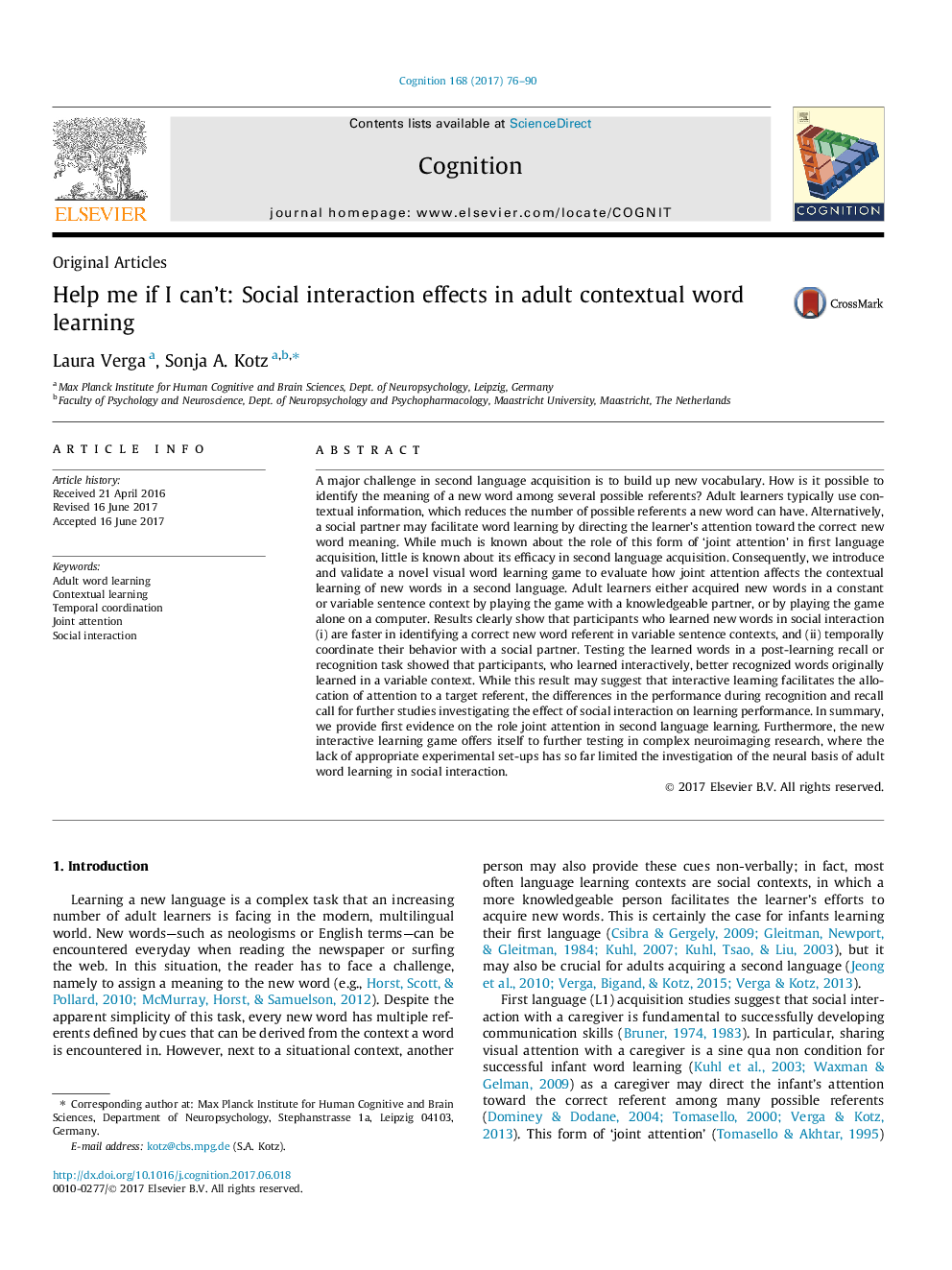ترجمه فارسی عنوان مقاله
اگر نمیتوانم به من کمک کنم: اثرات تعامل اجتماعی در یادگیری کلمات متنی بالغ
عنوان انگلیسی
Help me if I can't: Social interaction effects in adult contextual word learning
| کد مقاله | سال انتشار | تعداد صفحات مقاله انگلیسی |
|---|---|---|
| 113309 | 2017 | 15 صفحه PDF |
منبع

Publisher : Elsevier - Science Direct (الزویر - ساینس دایرکت)
Journal : Cognition, Volume 168, November 2017, Pages 76-90
ترجمه کلمات کلیدی
یادگیری بزرگسالان کلمه، یادگیری متنی، هماهنگی زمانی، توجه مشترک، تعامل اجتماعی،
کلمات کلیدی انگلیسی
Adult word learning; Contextual learning; Temporal coordination; Joint attention; Social interaction;

